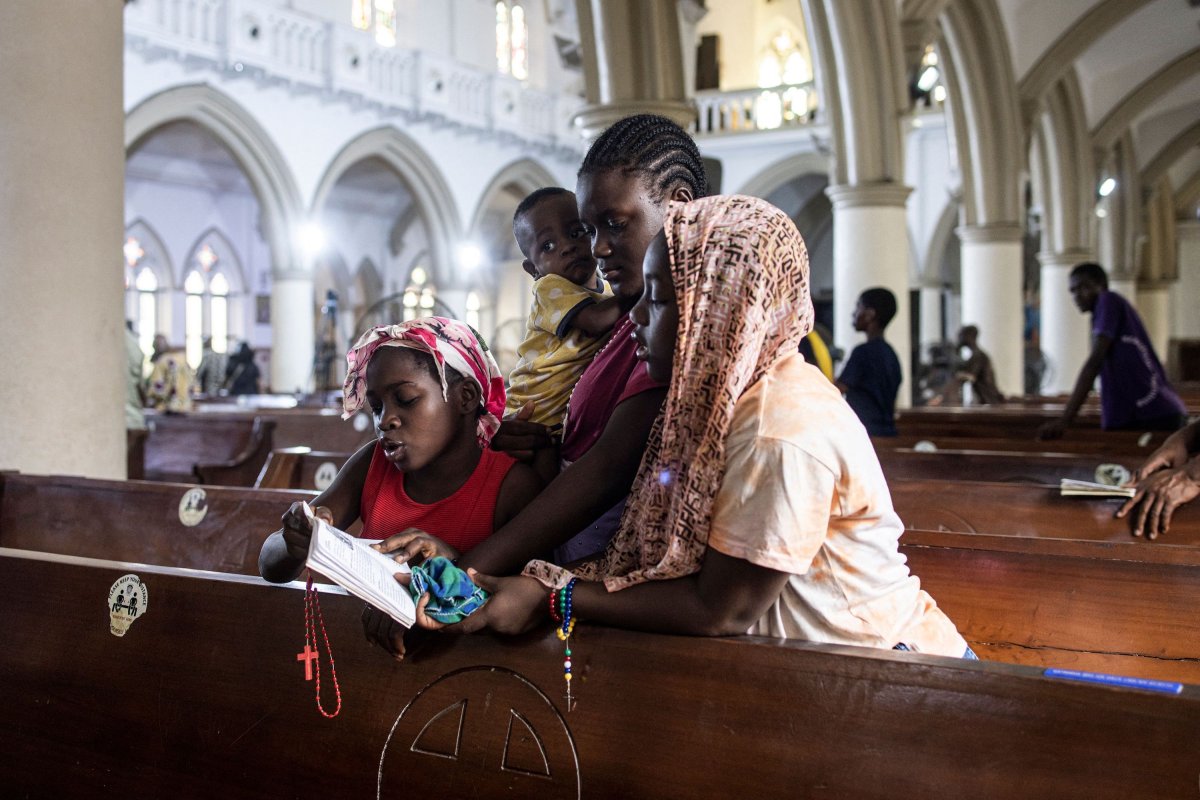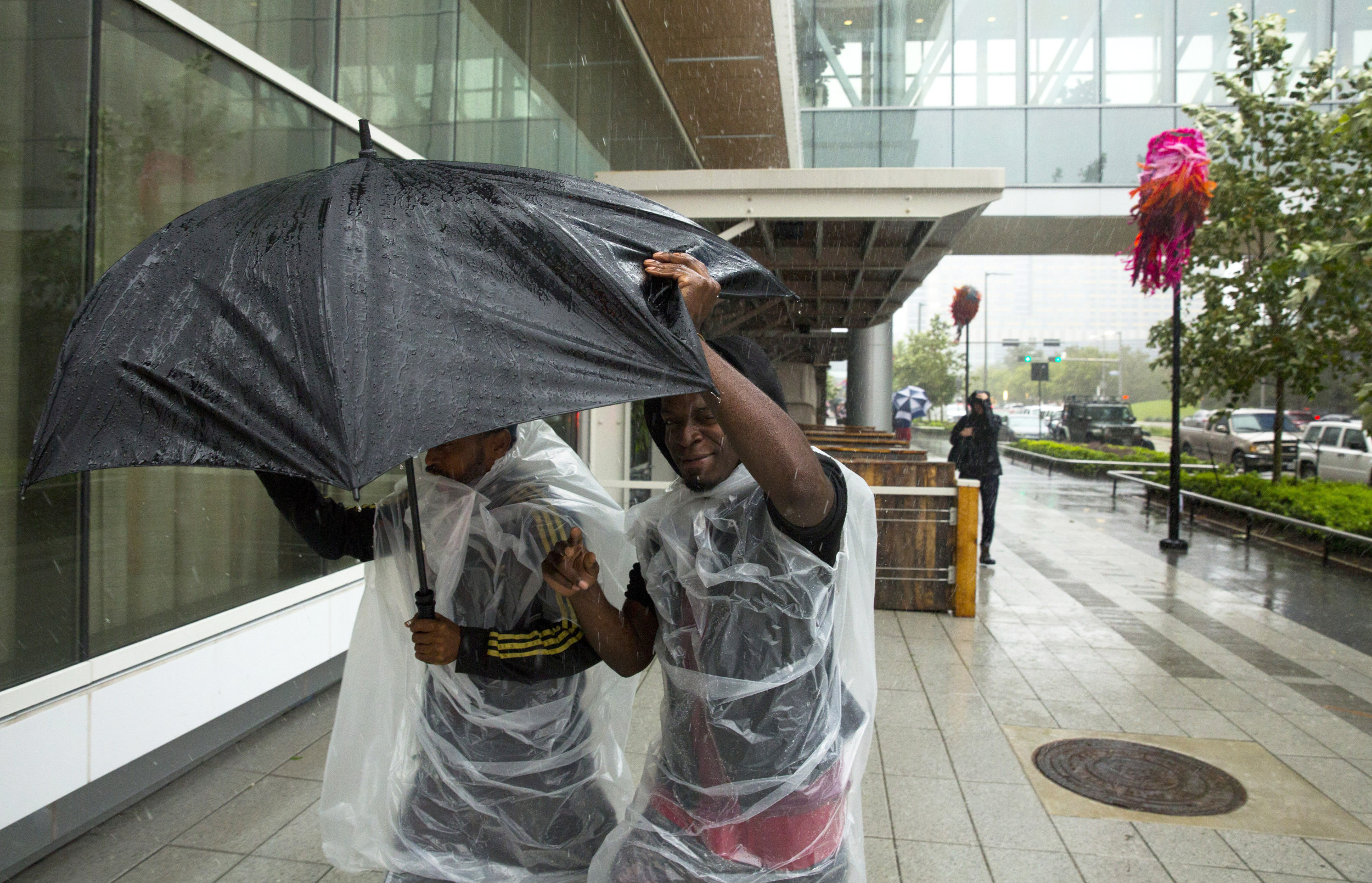For Catholics the world over, as in other Christian traditions, Lent is a time to reflect on the strength of our faith, repent our transgressions, and prepare ourselves for Easter and the salvation promised by Christ's suffering, death, and resurrection.
For most Christians in the United States and the developed world, Lent tests the sincerity of our devotion with the temporal temptations of modern life. But in much of the global south, one's faith can be subject to far more severe trials. Millions of Catholics risk their lives to worship God, and the simple act of attending Mass can be life threatening.
According to a 2023 report published by Aid to the Church in Need (ACN), a Catholic charity dedicated to sustaining the faith in places where it is oppressed, the persecution of Christians is on the rise globally. "Almost 340 million Christians around the world—or 1 out of every 8," the report declares, "live in a country where they suffer some form of persecution, such as arbitrary arrest, violence, a full range of human rights violations and even murder."
Nowhere is that disturbing reality more in evidence than in Nigeria, a country where the population is approximately half Christian and half Muslim, and where violent attacks on Christians have escalated since 2009, when Boko Haram began its brutal campaign of kidnapping and killing Christians.
If the current situation remains unchanged, before Holy Week ends this Easter, we will in all likelihood receive new reports of Catholics murdered in Nigeria, as was the case last Christmas when as many as 200 Catholics were slaughtered and hundreds more injured in attacks in more than 20 Nigerian villages.
Twenty Catholic missionaries were murdered in 2023, according to Fides, the news agency of the Pontifical Mission Societies. Of the nine missionaries killed in African countries, Nigeria had the highest total—four more souls added to the thousands of Nigerian Catholics killed last year for practicing their faith. Churches and seminaries are regularly attacked by criminal gangs and Islamic jihadists. Nearly every week last year, a Catholic priest was kidnapped, and many remain missing. In 2022, the ACN had already established that anti-Christian violence "In Nigeria and other countries...clearly passes the threshold of genocide."
What can be done to confront the spread of religious persecution in Nigeria and elsewhere? We can start by raising awareness of the crisis, by acknowledging its existence and confronting its perpetrators. America was founded on the conviction that all people are entitled to religious freedom. It's one of our founding principles, and the government of the United States has a moral and now, more recently, a legal responsibility to support that value wherever it is assailed.

The International Religious Freedom Act, signed into law in 1998, directs the State Department to designate countries where religious persecution is flourishing as "countries of particular concern," and to impose certain sanctions accordingly. Last year, the department neglected to designate Nigeria as "a country of particular concern" despite having identified it as such over the previous four years, and despite the fact that persecution there has worsened, not improved.
The U.S. government should correct that oversight this year. We cannot rally the free world to the cause of the persecuted if the leader of the free world makes exceptions for countries where people are suffering persecution, but where we might have competing interests.
"How many of you pray for Christians who are persecuted," Pope Francis asked Christians everywhere at the beginning of his pontificate. "Do I pray for that brother and sister who's in difficulty for confessing their faith?" The Pontifical Mission Societies, which His Holiness heads, and which I have the privilege of serving as national director, exist to translate prayer into action. Pope Francis' focus, and thus ours, has always been on the Church's missions.
We are charged to share and spread the faith by providing material and spiritual support wherever the need is great with an emphasis on those too young, poor, or actively persecuted to be self-sustaining, and in any place where God "has been denied, forgotten, persecuted or shunned."
As I noted above, religious persecution is on the rise worldwide, even in the U.S. Yet the Church is growing in vitality where it faces its greatest threats. Lent, this season of reconciliation and renewal, summons believers to the aid of the oppressed, so they may persevere in growing the Church no matter how dire the difficulties arrayed against them.
All free people should expect their governments to act as apostles of freedom and stand with those who ask nothing more and nothing less than to worship God and to live their faith in their daily lives freely and without fear.
Rev. Anthony D. Andreassi is interim National Director of The Pontifical Mission Societies in the United States.
The views expressed in this article are the writer's own.
Uncommon Knowledge
Newsweek is committed to challenging conventional wisdom and finding connections in the search for common ground.
Newsweek is committed to challenging conventional wisdom and finding connections in the search for common ground.
About the writer
To read how Newsweek uses AI as a newsroom tool, Click here.








